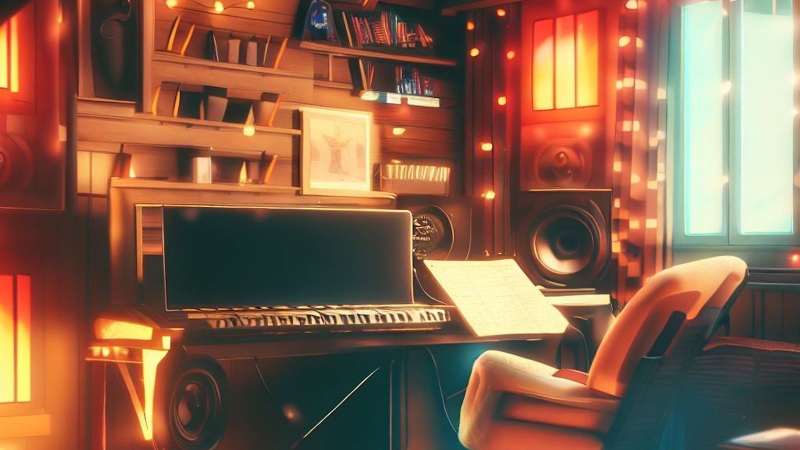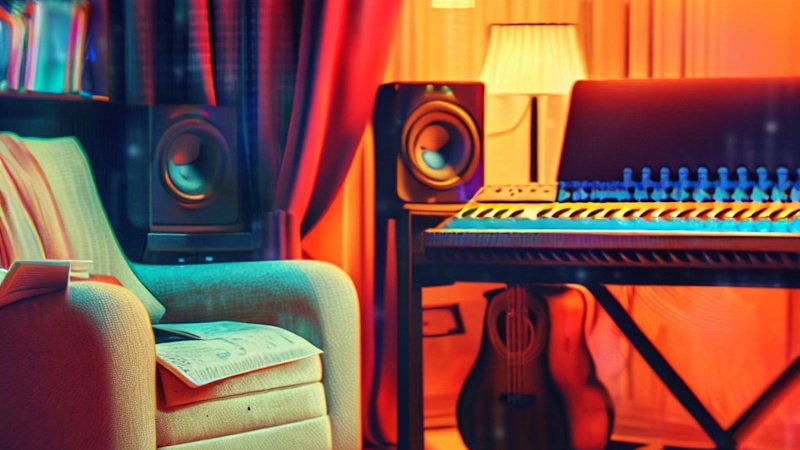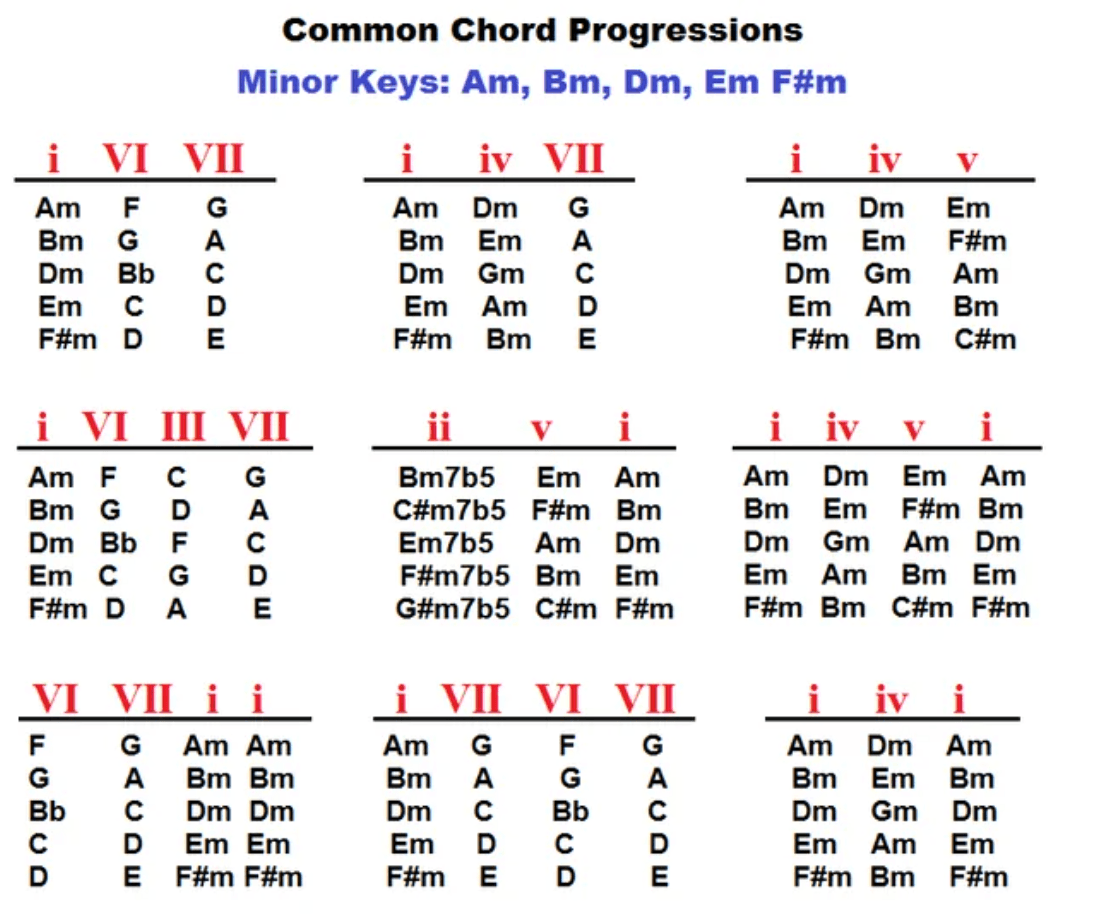In the ever-evolving world of audio production, musicians have constantly sought tools to enhance their craft.
As we journey from the dawn of sound recording to the rise of AI music tools, we witness a tale of innovation, creativity, and the undying spirit of music.

The Sonic Journey: Understanding Audio Production
At its core, audio production is an intricate dance of capturing, editing, and producing sound.
Whether it's the captivating rhythm of a chart-topping track, the catchy jingle from a beloved advertisement, or the soul-stirring anthem that evokes collective nostalgia, audio production plays a pivotal role.
Each piece of sound we hear, professionally produced, has undergone a journey from raw capture to refined masterpiece.
The Spine of Memorable Soundscapes
Every memorable auditory experience hinges on proficient audio production. It's not merely about documenting a sound; it's about immortalizing an emotion, a fleeting instant, a narrative.
The subtle inflections in a vocalist's delivery, the fervor of a guitar sequence, or the gentle murmur of a violin – all these elements are amplified and vivified through the intricate artistry of audio production.
Adapting and Evolving with Time
As with many art forms, audio production has not remained stagnant. With each passing era, it has morphed, adapted, and embraced new technologies.
From the rudimentary methods of the past to today's sophisticated digital interfaces, the tools at a producer's disposal have transformed dramatically.
Yet, the objective remains unchanged: to echo human emotions in the most authentic and resonant manner.
The Confluence of Art and Technology
The true beauty of audio production lies in its ability to meld artistry with technology.
It's where the impassioned vocals of an artist meet the precision of advanced software.
It's where raw talent is honed and shaped by cutting-edge equipment.
This synergy, the special confluence of creativity and tech, is what ensures that audio production continues to touch souls globally.
Tracing Back the Notes: A Historical Overview
As we navigate the vast seas of audio production, it's imperative to anchor our understanding in the rich history that has shaped this domain.
A melodious trip down memory lane provides invaluable context, reminding us of the audacious pioneers, innovative tools, and enduring passion that has brought us to the present day.
The Acoustic Era (1877–1925): When Sound First Got Captured
Before the age of electronics, the Acoustic Era emerged as a trailblazing period in audio production.
This epoch, characterized by gramophones and wax cylinders, marked the maiden voyage into capturing sound.
While these recordings, understandably, lacked the clarity and depth we're accustomed to today, they symbolized a groundbreaking leap.
For the first time in history, voices and instruments could be preserved and replayed, a marvel that bridged time and space.
The Electrical Era (1925–1945): Amplifying Emotions
The turn of the century ushered in a wave of electrified wonders.
Carbon microphones and electrical amplification systems revolutionized the way sound was captured and played back.
This era heralded a significant departure from the purely mechanical methods, enabling musicians and producers to tap into a broader spectrum of frequencies.
The result? Soundscapes that were richer, more intricate, and truly emblematic of the emotions they intended to convey.
The Magnetic Era (1945–1975): Flexibility Takes the Front Seat
Post World War II, the world of audio production was graced by the advent of magnetic tape recording.
Reel-to-reel systems, with their enhanced flexibility, were game-changers.
Producers could now edit, splice, and overlay tracks, paving the way for high-fidelity recordings that championed both authenticity and artistry.
Studio sessions transformed into experimental grounds, laying the foundation for the multifaceted genres we cherish today.
The Digital Era (1975–Present): Where Precision Meets Convenience
The dawn of the Digital Era marked a seismic shift in audio production.
Analog waves made way for binary codes, as digital technology promised unparalleled precision, reproducibility, and scalability.
From the shiny allure of CDs to the vast expanse of streaming platforms, the Digital Era wasn't just about producing sound but revolutionizing its distribution and consumption.
Accessibility became paramount, ensuring that melodies could touch hearts across the globe, instantaneously.

AI's Crescendo in the Music World
As the curtains rise on the contemporary music scene, there's a fresh player on stage, and it's not who you'd expect.
Enter the world of audio AI tools, working harmoniously with artists, echoing their visions, and amplifying their voice.
AI's entrance into the musical world has been less about replacing and more about revolutionizing—making the craft both an art and a science.
The Symphony of Collaboration: Humans and Machines
At the heart of every musical piece lies a story, a sentiment, an emotion. While humans breathe life into these narratives, audio AI tools come with the promise of precision and consistency.
Imagine a guitarist strumming a tune, only for an AI tool to suggest complementary chords.
Or a lyricist searching for the perfect phrase, and AI offering an array of options to choose from.
It's this partnership that's shaping modern masterpieces—where the soul of the artist intertwines with the logic of the machine.
Amplifying Creative Visions: AI's Role in Fine-Tuning
Music production is a nuanced process, often requiring meticulous attention to detail. Here, audio AI tools excel, streamlining complex tasks, and offering innovative solutions.
Whether it's mastering a track to ensure it sounds pristine across devices, or tweaking frequencies for that perfect mix, AI assists in getting the sound just right.
It's like having technical assistance in sound engineering on standby, optimizing beats and notes.
The Evolutionary Harmony: AI in Music Marketing
Beyond creation, the music industry involves the art of positioning and promotion.
With AI-driven marketing tools designed for SEO tags, YouTube descriptions, and Instagram captions, artists find themselves empowered in the digital realm.
These tools ensure that their music doesn't just sound good, but also reaches the right ears, resonates, and creates ripples across platforms.
Meet Empress: Your Next-gen Musical Partner
In the sprawling digital landscape of music, where competition is fierce and the need for distinction is paramount, having a reliable partner can be the difference between a hit and a miss.
Empress steps into this dynamic, offering a suite of AI-powered tools that enhance, refine, and elevate your musical vision.
More than just a toolset, Empress is a revolution in audio production, bringing together the intricacies of art and the precision of technology.
1. Melody Mind
Melody Mind is the AI Melody Generator behind your masterpiece.
This AI-driven melody generator requires inputs like the instrument, chords, genre, and beats per minute (BPM).
For instance, inputting a flute, C Major chord, classical genre, and 120 BPM could yield a serene and lilting tune reminiscent of a tranquil morning in the countryside.
2. Lyric Lab
If you've ever been at a loss for words, let Lyric Lab guide your songwriting. Simply provide a genre, such as "Futuristic Sci-Fi", and select a tone or style like "ominous".
The result? A cascade of verses that might transport listeners to dystopian cityscapes or intergalactic voyages.
3. Chord Candy
For those who seek the perfect progression to evoke specific emotions, Chord Candy is your ally.
By entering the desired instrument, musical key, genre, and BPM, you might produce an entrancing sequence.
Imagine inserting in an acoustic guitar, the key of G, folk genre, and 90 BPM to get chords that resonate with the warmth of a campfire gathering.
4. Song Idea Generator
Song Idea Generator is like an endless wellspring of inspiration. By simply selecting a theme or emotion, such as "Depression" or "Euphoria", you're provided with song concepts.
Dive into the melancholic depths or ascend to euphoric peaks, all with a touch of AI magic.
5. Bass Brain
Every song craves a solid foundation, and Bass Brain delivers just that. Enter the type of bass, chords, genre, and BPM to generate compelling bass lines.
Imagine inputting a slap bass, funky chords, jazz genre, and 110 BPM, culminating in a groove that gets everyone on the dance floor.
6. Drums De Dior
The heartbeat of any track, Drums De Dior crafts rhythm patterns tailored to your preferences. By specifying a genre and BPM, like rock at 140 BPM, you could be on the way to creating a pulsating and powerful beat that drives your song forward.
7. Harmonious Hitmaker
In a world where standing out is paramount, Harmonious Hitmaker is the secret sauce to chart-topping success.
Input an emotion and genre, say, "nostalgia" and "80s synth-pop", and watch as your song title transforms into a sensation, resonating with audiences worldwide.

Future Trends in Audio Production: A Glimpse into the Sonic Horizon
The world of audio production seamlessly melds artistry with technological innovation. As we embark on the threshold of a transformative epoch, a slew of avant-garde technologies are set to revolutionize our auditory journeys.
Check out the forthcoming trends poised to sculpt the landscape of audio production:
1. Immersive Audio: Surrounding the Senses
Immersive audio, as the name suggests, immerses listeners within a three-dimensional sound field, making it feel as if the sound is enveloping them from every direction.
Pioneering technologies such as Dolby Atmos and Auro-3D are pushing the boundaries, providing a holistic sound experience.
From movies and video games to virtual reality escapades, immersive audio is establishing its foothold, transforming passive listening into an active, enveloping experience.
2. Spatial Audio: Crafting Realistic Soundscapes
Spatial audio takes a step further by positioning sound within a 3D space, enhancing realism and immersion.
Especially gaining traction in virtual and augmented reality domains, spatial audio provides sound engineers with tools to curate not just a sound, but a sonic environment, elevating the auditory experience to unparalleled heights.
3. Virtual Reality: A Sonic Odyssey
Virtual reality (VR), though not strictly an audio-centric technology, is instrumental in redefining the contours of audio engineering.
By mirroring a user's tangible presence within a three-dimensional environment, VR, when intertwined with sophisticated audio methods, can craft dynamic sound environments that respond instantaneously to user interactions.
From electrifying concerts to adrenaline-pumping video games, VR is morphing passive audiences into active participants.
4. AI and Machine Learning: The Sound of Efficiency
The advent of artificial intelligence and machine learning in audio engineering is akin to a maestro wielding a conductor's baton.
By automating tasks ranging from categorizing music tracks to mastering mixes, these technologies are ushering in an era where creativity thrives unbridled, unencumbered by mundane tasks.
5. Cloud-Based Audio Production: The Global Studio
The winds of change have brought with them cloud-based audio production, effectively decentralizing the traditional studio setup.
Facilitating real-time collaboration, irrespective of geographical constraints, the cloud has emerged as the savior, especially in the wake of the COVID-19 pandemic.
As travel restrictions loomed, the cloud bridged gaps, ensuring that the symphony of creativity played on, uninterrupted.
Ready to elevate your music with the best of technology and creativity?
Dive into Empress today, where dreams get the perfect pitch!
FAQs: Audio Production
Q1: How has audio production evolved over the years?
It's transitioned from basic acoustic recordings to intricate digital masterpieces, with each era bringing unique tools and techniques.
Q2: Is AI aiming to replace human musicians?
No, AI music tools amplify human creativity, offering inspiration and assistance in music production.
Q3: Can beginners benefit from Empress?
Absolutely! From chords to marketing, Empress offers tools that guide novices and experts alike.
Q4: How does Empress help in music marketing?
Empress provides SEO tools for tags, YouTube descriptions, and Instagram captions, ensuring wider reach and engagement.
Q5: What's the biggest advantage of using AI in audio production?
AI tools bring efficiency, fresh perspectives, and data-driven insights, enriching the creative process.
Follow the future of music with Empress. Check out our blog to learn how you can effectively use these AI music tools.


